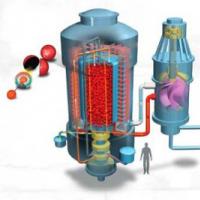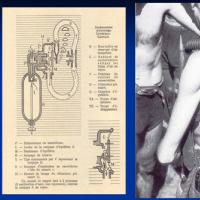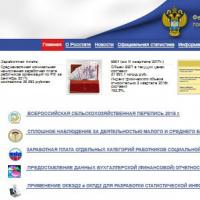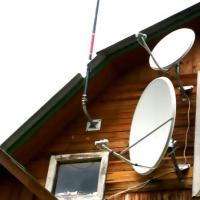Hospitality universities. Hotel and restaurant business: what to take and a list of educational institutions
A person who regulates a coffee shop, restaurant, fast food chain, or other food and catering establishment. His work is connected with all aspects of customer service: he must create the atmosphere of the institution, regulate the work of all employees, and monitor the quality of services. The restaurateur is the soul of any establishment, in fact, he is responsible for the impression left on the visitor of the restaurant, if he succeeds, then it brings a good profit.
Personal qualities
A restaurateur can manage both a restaurant and a bar, a pastry shop, a snack bar, and a fast food chain. Moreover, in all cases, he must be impeccably versed in accounting, legal affairs, the quality of food and drinks, service, the design of the establishment - to organize the entire enterprise.
The profession of a restaurateur involves an irregular working day, which will require endurance, and ingenuity will come in handy in difficult and controversial situations that sometimes arise when working with visitors and staff. Purposefulness, ability for languages and organizational activity will help in a career. However, the most important thing is the desire to gain knowledge about all levels of restaurant work.
Where to study for this profession
The profession involves work in the field of nutrition and management, so you can graduate from both a university and a secondary educational institution with the prospect of entering the third year of the institute right away. You can graduate from a university, college, continue your studies as a restaurateur at the university after secondary education, or complete restaurateur courses. Each of these paths has its own specifics. Restaurateur courses can be completed by a person who does not even have a specialized education, most importantly, the desire to develop in the restaurant industry.
Each university has bachelor's programs (4 years of full-time study and 5 years of part-time study), as well as a master's program - 2 years.
Training for a restaurateur at a university:
Moscow
Faculty: Economics and management of a hotel enterprise
Passing score: 269
- Russian New University
Faculty: Hotel activity
Entrance exams (USE): social science, Russian language, foreign language
Passing score: 204
- Russian State Social University
Faculty: Hotel business
Entrance exams (USE): social science, Russian language, foreign language
Passing score: 156
St. Petersburg
- Saint Petersburg State University Service and Economics (SPbGUSE)
Faculties: "Economics and management of service enterprises", "Trade and restaurant business"
Entrance exams (USE): social science, Russian language, foreign language
Passing score: 256
- National Association of Hotels and Restaurants "Hospitality Academy"
Faculties: Hospitality, Service
Entrance exams (USE): social science, Russian language, foreign language
Passing score: 210
Pros and cons of the profession
Pros of the profession include: interesting job, space for embodiment own ideas, high salary.
Cons: work as a way of life - almost no days off and regular holidays, stressful atmosphere.
Career. Places of employment
A restaurateur may be required in institutions of various types: a restaurant, a pizzeria chain, a coffee shop, a wine restaurant, even a bar and a children's cafe.
Among them may be:
Restaurant "Metropol"
Pizzerias "Papa John's"
Starbucks coffee shop chain
Bar-club "Chinese Pilot Zhao Da"
Related professions
The restaurateur is an extensive profession, but it differs in many ways from those adjacent to it. For example, from the profession of a cook, by the fact that he regulates the quality of dishes and their taste, composes and participates in the creation of the menu with him, and the cook directly embodies this idea. The difference from the administrator is that the restaurateur is more deeply aware of his establishment, has an idea about all aspects of the life of the enterprise, and the administrator only shares part of his management responsibilities.
Since the profession requires a good knowledge of the restaurant business, you should think about practice and work from the first courses of study. There are educational programs that will help bring such a plan to life (correspondence and part-time forms). In practice, restaurateurs become either entrepreneurs or people who have gone through the entire career ladder from a cook to a restaurateur and know their business perfectly.
Tourism and Hospitality Course Program
Hotel business organization
- Introduction to the hospitality industry.
- 1.1. Fundamentals of marketing in the hospitality industry. Definition of the hospitality industry. The main purpose of marketing in the hospitality industry. The concept of "service" and its main specific feature.
- 1.2. Rules for the provision of hotel services in Russian Federation. The concept of "hotel". Hotel classification. Number fund. European standard.
- 1.3. Management structure of a modern hotel. Services, departments, division of the hotel. The relationship between them.
- 1.4. The emergence and development of the hotel industry. Hotel and tourism business, its place and role in the economy. Its influence on the development of industries. The most unusual hotels in the world.
- Booking and accommodation service.
- 2.1. The role and place of the booking and accommodation service in general management structure modern hotel. Service organization. Job descriptions of the personnel of this service.
- 2.2. Technical means ensuring the work of the service (fax, telex, computer, copier, etc.) Office equipment.
- 2.3. Four cycles in serving guests.
- 2.4. Reservation (booking). Reservation types. Ways and technology of reservation. Confirmed Reservation. Reservation fee.
- 2.5. Reception and accommodation of guests (check-in).
- 2.6. Registration and its procedure. Registration of documents. Features of registration and registration of foreign citizens, citizens of Russia and citizens of the CIS.
- 2.7. Room rates. Published and corporate prices. Discount systems. Methods of payment (cash, bank transfer, payment by vouchers). Payment documents. Work with credit cards.
- 2.8. Key economy. The procedure for issuing keys. Ensuring the safety of guests' property. Organization of storage of valuables.
- 2.9. Guest service during the stay (mini-bars, laundry). Provision of additional and personal services for catering, transport and excursion services.
- 2.10. Familiarization with the work of the business center, service bureau, health center, hairdresser, room - service, restaurants, bars in the hotel.
- 2.11. Settlement of guests (preparation and execution of the settlement operation).
- 2.12. accommodation payment, additional services, telephone conversations.
- 2.13. Charging fees for damage and loss of hotel property by customers. Methods to eliminate the shortfall in income by the hotel. Documentation (invoices, registration books, forms, etc.).
- 2.14. Operators work telephone connection. Communication norms.
- 2.15. Ensuring the safety of guests. Doorman service and security service. Night audit at the hotel. Non-standard situations control over them. Behavioral models of people in stressful situations. Organization medical care guests.
- Administrative - economic (floor) service of a modern hotel.
- 3.1. Service composition. Service personnel job descriptions. Sanitary and hygienic requirements for the maintenance of rooms and public premises.
- 3.2. The latest trends in floor-to-floor guest service technology.
- 3.3. Different kinds cleaning: current, intermediate, evening, general. Cleaning sequence. Cleaning technology.
- 3.4. Key economy. Abandoned and lost things. Storage. Return procedure.
- 3.5. Hospitality items of one-time consumption in branded design, promotional materials, their placement, quality control of cleaning and technical condition numbers.
- 3.6. Work with linen (storage of clean linen, collection and accounting of used linen, sending it to the laundry, work with personal linen of residents).
- 3.7. Serving high-ranking guests (VIP-guests).
- 3.8. Maid's working trolley, equipment, equipment, cleaning mechanisms, inventory, detergents, their characteristics. Consumption rates of household materials, requirements for their rational use.
- 3.9. Complaints from guests (questionnaire survey cards on the quality of service).
- 3.10. Occupational safety, safety, fire safety rules in the fire service.
- Internal regulations for hotel workers.
- 4.1. Requirements for hotel workers. Recruitment for the hotel business. Legal basis. Rights and obligations of hotel employees.
- 4.2. Recommendations regarding the writing of resumes, questionnaires. Practical Tips, analysis of the questions most frequently asked at interviews in the personnel department of hotels.
- Test (interview).
Tourism business organization
- Legal aspects of tourism business
- 1.1. Normative base to ensure the quality of service in the tourism business. Law on Consumer Protection". the federal law"On the basics of tourism activities in the Russian Federation". Other regulations, rules, recommendations.
- 1.2. Basic terminology of the tourist services market.
- 1.3. Organs government controlled tourism.
- Participants in the tourism process
- 2.1. Contractual relations with foreign partners (travel agency, hotel, restaurant, tour agency, etc.). procedural questions. Reception of objects.
- 2.2. Tour operator company. agency network.
- 2.3. Travel agency as a travel agency - an intermediary. An agreement between them (travel agency agreement). Rights, duties and responsibilities.
- 2.4. The client is the central figure in the tourism process, the consumer of the tourism product.
- Types of travel in international, inbound and domestic tourism
- 3.1. Tourism is a branch of the national economy.
- 3.2. Cognitive types of tourism. Education.
- 3.3. Travel as an active holiday and recreation.
- Development and selection of tourist programs
- 4.1. Tours abroad, Excursion routes, Leisure tours, Combined trips, Bus tours, Cruises (sea, river), Winter tours, Tours for schoolchildren, Business tours: Shopping tours, Educational tours, Individual trips (special programs), Inbound tourism, Features of reception and service of foreign tourists in the Russian Federation (Main routes, Business tourism), Domestic tourism.
- Tourist Service Agreement
- 5.1. A package of documents. Tourist ticket.
- 5.2. The content of the contract with the client. Voucher.
- 5.3. Mandatory and additional services.
- 5.4. Penalties.
- Relationship with the client
- 6.1. Professionalism, moral and psychological aspects of communication.
- 6.2. Awareness, the right to choose.
- 6.3. Consideration of claims, comments and complaints. Protection of the rights of the tourist and the interests of the company.
- 6.4. Medical insurance. Other types of insurance.
- Service quality and service safety
- 7.1. Safety of life, health, environment; safety of property.
- 7.2. Security of the process of performing tourist services (planned and additional).
- 7.3. Service quality system. Sociological research.
- 7.4. Forms and methods of control.
- 7.5. Control bodies.
- Compliance with the laws of the host country, rules and customs
- 8.1. Legal and moral and ethical aspects. General provisions. Specificity of a particular country. Tourist responsibility.
- Hotel service
- 9.1. Classification of enterprises providing accommodation services.
- 9.2. Technology system tourist services in the hotel.
- 9.3. Rules for the provision of hotel services (ordered and additional).
- 9.4. mode and security.
- 9.5. Responsibility of the parties under the contract (complaints, claims).
- Catering
- 10.1. Technology and catering for tourists. Types of food.
- 10.2. Requirements for food quality and safety.
- 10.3. Responsibility of the parties under the contract (complaints, claims).
- Transport service for tourists
- 11.1. Classification of transport trips and Vehicle(air, railway, buses).
- 11.2. Ticket booking procedure. Charter flights.
- 11.3. Transfers. Meetings - seeing off tourists.
- 11.4. Travel safety.
- Excursion service
- 12.1. Types of excursions.
- 12.2. Technology of preparation and organization of excursions (scheduled and optional).
- 12.3. Safety rules for excursions.
- 12.4. The quality of excursions (accounting for clientele, content, intelligibility, etc.).
- 12.5. The role of the tour guide, group leader. Consideration of claims.
- Passport and visa issues
- 13.1. General passport (OPP).
- 13.2. The order of registration, important "details".
- 13.3. Responsibility for the power of attorney of the firm's and the client's ORP.
- 13.4. The procedure for issuing and obtaining exit visas. Schengen visa. Visa-free or simplified entry into the country.
- 13.5. customs control upon entry and exit.
- 13.6. Customs formalities (peculiarities of countries).
- 13.7. Favorable regimes.
- 13.8. Carriage of luggage, delivery of goods by "cargo".
- 13.9. customs restrictions. Sanitary and epidemiological control.
- Competitiveness of a travel company
- 14.1. Preparation of a tourist product for sale.
- 14.2. Pricing, calculation of tourist services. Profitability and profit.
- 14.3. Tourist advertising. Types of advertising, rules for conducting advertising campaign. Advertising requirements.
- 14.4. Questions of taxation.
- The procedure for the formation of a travel company
- 15.1. Development constituent documents. Company registration. Company charter.
- 15.2. Licensing of types of activity.
- 15.3. Tourist product certification.
- 15.4. Liquidation of travel companies.
- Staffing of tourist and excursion services
- 16.1. Civil law relations. Code of Labor Laws of the Russian Federation.
- 16.2. Rights and obligations of employees. Inner order rules. State structure. Job instructions. Qualifications. Working conditions and wages. Operating mode.
- 16.3. Organization technological process travel agency work. Office work.
- 16.4. Reporting to higher authorities (tax office, other government services).
- Features of tourism business management.
- Prospects for the development of tourism
- 18.1. International and domestic tourism in the conditions of market relations. Trends.
- Review computer programs used in the practice of travel companies.
- 19.1. Acquaintance with the program "Mastertravel agent".
- 19.2. Practical lesson. Booking tours: the procedure for on-line booking on the example of a separate site.
- 19.3. Practical lesson: tour designer.
- 19.4. Tourist search engines.
- Test (interview).
| Ac.h. | base price | Discount | Final cost | Pay |
| 88 ac.hours 76 ac. hour.- Auditory lessons 12 ac. hour.- self-study |
32230 rub. | 19340 rub. |
Hotel management in Switzerland, restaurant business, culinary arts - today all these specialties are recognized as promising, and the sphere itself is a dynamic and developing sector where it is profitable to invest. For this reason, the demand for hospitality services and good specialists is growing. Quality education in the tourism industry plays almost a key role in developing a successful career. Russian students or foreigners have the opportunity to receive a prestigious diploma in one of the areas only abroad.
The best hospitality schools in Europe and abroad: list, ranking, cost
motherland vocational education in the field of tourism, hotel business and restaurant business, Switzerland is recognized. It was in this country that the first educational programs for key specialties of the industry were created. As the industry moves forward, the list of in-demand specialties is also expanding, creating a need for new curricula.
In itself, the educational structure in the hospitality and tourism industry is complex. It combines theoretical and practical parts in a balanced way, because the main task of such education is to make a ready-made professional by the time you receive a diploma of education. Therefore, all students receive their first work experience in real conditions in less than six months after the start of training.
Internships in operating companies are an obligatory element for each student of all the specializations presented. Separately, we note that practice in Swiss or European universities takes place not just in hotels or restaurants, but in establishments of leading brands in the tourism and hospitality industry: these are Four Seasons, Hilton, Hyatt, The Ritz-Carlton and other prestigious companies. Such cooperation between business and higher education helps future professionals get a good job after graduation - according to statistics, more than 75% of graduates receive a job offer from their place of internship. Therefore, the main number of students of hospitality colleges and universities quickly go to work and start building a career.
This article provides a list of outstanding institutes and schools of the hotel and restaurant business, culinary arts around the world: in the USA, Spain, Switzerland, Turkey, France, Germany, where you can both get trained and get a profession or a master's degree in the following areas : hotel business, hotel management, restaurant business, culinary arts and etc.
This article will present educational institutions that teach at English language. The company's specialists have selected educational institutions in various price categories and countries so that you can choose the most suitable option for yourself.
Hospitality training in Turkey:
- Antalya: from 4700 euro in year
Schools of hotel and restaurant business in Spain:
- - MSc in Hospitality Management or Tourism Management (in English) from 6000 euro in year
- - offers programs in Hospitality Management and Tourism, Management of events in the field of tourism from 7900 euros in year
- - the most prestigious school hotel management in Spain. At the bachelor's degree, the cost of programs from 17000 euros in year
Training in hotel management in Germany:
- Bad Honef (Cologne) and Berlin: - Germany's best employment institute offering programs in Tourism, Hospitality, Event Management - price from 7000 Euro
Training in hotel and restaurant business in France:
- - Hospitality, Tourism and Event Management (Event Mangement) - price from 8000 euro in a year
Hospitality institutions in Switzerland with the cost:
- , Lucerne, Switzerland. From CHF 40,000 per year without accommodation.
- from CHF 55,000 per year with accommodation
- . Price from 50,000 francs
- One of the most prestigious institutes of hotel business and restaurant business - Glion Institute of Higher Education - and in - from 55,000 Swiss francs, and also in - from 20,000 pounds
- Renowned school of hotel management in , - Les Roches - from 30,000 euros

Very helpful articles on getting higher education in the hospitality industry in Switzerland:
Training in the restaurant business in the USA / America
- In the USA, we can note a group of universities Johnson and Wales JWU (Johnson & Wales University) in cities such as, and. Annual tuition fee from $25,000 USA.
Studying Hospitality Management in New Zealand
- School of Hospitality Management, New Plymouth, New Zealand, from NZ$25,000.
In most of the presented educational institutions short-term courses and preparatory programs for long-term training are conducted. Contact us!

The list of the main specialties in the field of tourism, hospitality and restaurant business, which are most in demand among foreigners and Russian students:
- Hotel business. Hospitality management is one of the most in-demand jobs in the industry. Good specialist hotel management controls many issues, it is his work that helps to create an impeccable service in the hotel. In the process of studying, students will learn all about the necessary standards in the hospitality industry, which will help them easily get a prestigious job or start their own business.
- Restaurant management. European countries are generally recognized leaders in this area, therefore, to obtain the appropriate education, we recommend choosing a university from these countries. This specialization opens up many opportunities for professional direction: after training, you can go to work as a restaurant critic and art director, choose the path of a sommelier or create a concept for a trendy coffee house - the choice is not limited to the listed options.
- Tourism management. Tourism itself is a very popular and sought-after area around the world, and therefore this specialty is incredibly promising. In addition, such work is more connected than the rest with traveling and traveling, which for someone can be the ultimate dream. During the training, students will learn how to correctly assess the environment, wherever they are, book cheap air tickets, book hotels and much more. These skills will be useful not only in the professional aspect, but also in privacy every student.
- Spa management. One of the most demanded specializations abroad. After all, not a single elite hotel can do without the provision of massage services and other spa treatments. Proper organization of such a paradise in a hotel will require the guidance of a competent specialist who will be able to recruit the right staff, conduct market analysis, manage all the facilities of the center and much more.
- Event management. This is a relatively young specialty, which, however, has already won a place of honor in the labor market. A professional event manager is able to organize any event, be it a conference, seminar, forum, exhibition, presentation, and so on. The event manager manages all the processes that occur during the preparation, holding of the event itself and even after its completion.
- Sports management. The functionality of this specialist is similar to the tasks of the previous specialty with only one difference - the scale of events in sports is much larger. Purposeful people work in this area, leaders by nature, who know what they want and how to get it. Having received a diploma in this specialty, the student will become the owner of a unique set of knowledge - from marketing to the ability to work with sponsors and global brands.
- Management in the entertainment industry. The sphere of entertainment and show business remains one of the most developed and invariably attracts billions of dollars into circulation. The education of a manager in the entertainment industry will also open up a wide choice of implementation in front of its owner. professionally: from creating your own TV projects to the implementation of the author's entertainment project.
300 hours 23500
4.1 Classification of hotels
12. Fundamentals of hotel management
18. Recruitment of hotel staff
18.3 Leadership styles
Apply for training and get free access to a demo lesson on 11 secrets from successful hoteliers to increase hotel sales right now!
Profession in the field of hotel business - promising and relevant
The tourism business in Russia and around the world, despite certain economic instability, is actively developing today, and this mainly contributes to the emergence of hotels of different levels and quality of service. Unfortunately, not all hotel owners understand how important it is for the hotel's reputation to be able to professionally and competently manage the hotel's departments and services. This requires not only an understanding of successful examples management of well-known hotel chains and the structure of hotel services, but also to understand in detail the quality standards, staff requirements and additional services that the hotel can provide.
The position of a hotelier is the highest rung on the career ladder in the hotel business, it requires high competence and is associated with extreme responsibility. Only a true professional with an appropriate education in this field can hold such a high position. And you can get such an education in the hotel business at the courses of the International Academy of Business.
The program of the full course "Hospitality" especially for hotel managers
The International Academy of Business has developed an effective program of training in the hotel business especially for the heads of hospitality enterprises.
The program "Hospitality" at the International Academy of Business is aimed both at training "from scratch" and at improving the skills of hotel or hotel managers.
International Academy of Business uses modern approaches and technology in education. Gone are the days when you had to attend classes at fixed hours and spend time on the road. To study at the International Academy of Business, it is enough to have Internet access to get necessary knowledge at any time and from anywhere in the world. Try and feel how easy and productive distance learning can be, thanks to an understandable form of presenting the material, provided with illustrations, tables, charts and videos. In the process of studying hotel business and business professional specialists Academies will always be in touch with you, ready to answer all your questions. Our main task is to help you master the specialty most effectively and efficiently. Distance courses of hotel business at the International Academy of Business are high-quality educational services for your future!
Modern and promising education at the International Academy of Business
The International Academy of Business has been specializing in providing qualified training for owners, managers and employees of the tourism and hospitality industry for over 15 years. More than 5,000 students have already entrusted the Academy with their professional development and career growth.
After completing distance learning courses in hotel business at the International Academy of Business, graduates receive state diploma with international graduation supplement professional course"Hotel business".
License for educational activities №038379
The program of the training course "HOTELS"
1. Introduction to the subject of the hospitality industry1.1 History of development and place in the economy of the hotel and tourism business
1.2 Global hospitality brands and brand success story The Ritz-Carlton, Hilton, Kempinski, Holiday Inn, Marriott
2. The hospitality industry in the 21st century
2.1 Structure and development factors of the hospitality industry
2.2 Seasonality and state of the art hospitality industry
2.3 Basic models of hospitality and hotel business organization
2.4 Classification and specificity of hotel services and hotel product
3. Classification and structure of hotel enterprises
3.1 Classification of hotels in different countries by category, category, comfort level
3.2 Types of hotels and functional purpose of hotels
3.3 Requirements for hotels of different levels and life support
4. Features of the development of the domestic hotel industry
4.1 Classification of hotels
4.2 The hotel industry system and hotel chains in Russia
4.3 The system of the hotel industry in Moscow and St. Petersburg
5. Main features of the services hotel business
5.1 Hotel services and their functions. Interaction of hotels and travel companies
5.2 Working methods and room reservation systems. The structure of the reception and accommodation service
5.3 The structure of the engineering, technical and administrative services of the hotel
5.4 Structure of the security service and job descriptions hotel staff
6. Theoretical basis international standards hotel service
6.1 The concept of a quality service standard and the application of service standards as a success factor
6.2 Appearance and rules of conduct for hotel staff
6.3 Telephone conversation standard. Booking, check-in, check-out procedure
7. Basic requirements for employees of hotel enterprises
7.1 Compliance professional ethics and personal qualities to work in a hotel
7.2 Factors influencing guest choice of hotel
7.3 The most common types of customer behavior and the rules of communication between hotel staff and guests
7.4 Key principles for successfully dealing with difficult guests and how to deal with complaints
8. Organization and basic principles of the hotel restaurant complex
8.1 Hotel restaurant complex system and waiter standards
8.2 Advantages and disadvantages of outsourcing in the hospitality industry
8.3 Room-service and compliment system for hotel guests
8.4 Document flow rules, accounting for restaurant service dishes and minibar products
9. System of additional hotel services
9.1 Hotel booking, transfer and excursion services
9.2 Typology, types and functions of hotel animation services and programs
9.3 Catering for tourists in hotels
10. Licensing and certification of the hotel business
10.1 Definition of standardization, hotel standards and licensing
10.2 Indicators of the quality of hotel services
10.3 Validation of the hotel international requirements(certification) and international certification
11. The role and economic significance of competition in the tourism market
11.1 Effective management of the hotel business. Formation and key factors of competitiveness
11.2 Types and basic strategies of competition in the hotel services market
12. Fundamentals of hotel management
12.1 Classification of hotel management forms: contract, franchising, rent, joint-stock companies, syndicates, consortia
12.2 Structure and methodology of hotel business management. Quality management
12.3 Leadership and motivation of hotel employees
12.4 Methods and functions of planning, management functions
13. Management decisions and procedures and developments
13.1 Types and conditions of efficiency management decisions
13.2 Process, decision styles and approach to decision making
13.3 organizational plan and control over the execution of decisions
14. Financial management hotel enterprises
14.1 economic planning and analysis financial condition hotel business
14.2 Components of the hotel product and calculation of the cost of hotel services
14.3 Hospitality revenue management, accounting and reporting
14.4 Indicators for assessing the movement and condition of the fixed and working capital of the hotel
15. Drawing up a business plan for opening a hotel
15.1 Business planning, budgeting and costing
15.2 Interactions of hotel management systems
15.3 Preparation process for hotel expansion
16. Marketing management in the hotel business
16.1 Major booking systems
16.2 Cyclicity in the marketing of hotel services. The need to monitor competitors and action plan
16.3 Internet promotion and program organization
17. Security and security system
17.1 Integrated system security and fire system
17.2 The concept of modern hotel security
18. Recruitment of hotel staff
18.1 Features of hiring staff in a hotel, rules for conducting questionnaires and interviews
18.2 Peculiarities of recruitment for line and leadership positions, leadership qualities and organizational skills
18.3 Leadership styles
19. Professional development of hotel staff
19.1 Education, training and professional adaptation new employees
19.2 Evaluation of the work of hotel employees
19.3 Training and certification of hotel staff
20. Hotel personnel management
20.1 Forms and methods of personnel management, recruitment
20.2 Conclusion rules employment contracts and wages
20.3 Fund formation and accrual wages
21. Fundamentals of taxation of a hotel enterprise
21.1 System of taxes and fees, VAT calculation
21.2 What are the taxes from net profit enterprises and the cost of production
21.3 Features of hotel taxation and income tax
The course "Hospitality" of the International Academy of Business will teach you to understand the trends in the hotel business, tell you about the nuances of the services provided by the hotel, and introduce you to the standards in the hotel industry. You will learn all the subtleties of hospitality management. No more looking for where to study hotel business and hotel business - the most effective distance learning hotel business at the courses of the school of hoteliers at the International Academy of Business. Apply for the Hospitality course now and in just a few weeks of study you will acquire all the necessary knowledge to effectively manage a hotel business and master the profession of a hotelier!
 The very first power plant in the world
The very first power plant in the world Macaw lifestyle and habitat
Macaw lifestyle and habitat Denise's "diving saucer"
Denise's "diving saucer" Letter from Rosstat for free!
Letter from Rosstat for free! We strengthen the signal of the Yota-modem Not a stable signal yota
We strengthen the signal of the Yota-modem Not a stable signal yota How to spend the Internet in the country without overpaying: tips and instructions Internet in the country what to choose
How to spend the Internet in the country without overpaying: tips and instructions Internet in the country what to choose Mobile Internet Skylink Purchase of equipment and SIM-cards
Mobile Internet Skylink Purchase of equipment and SIM-cards